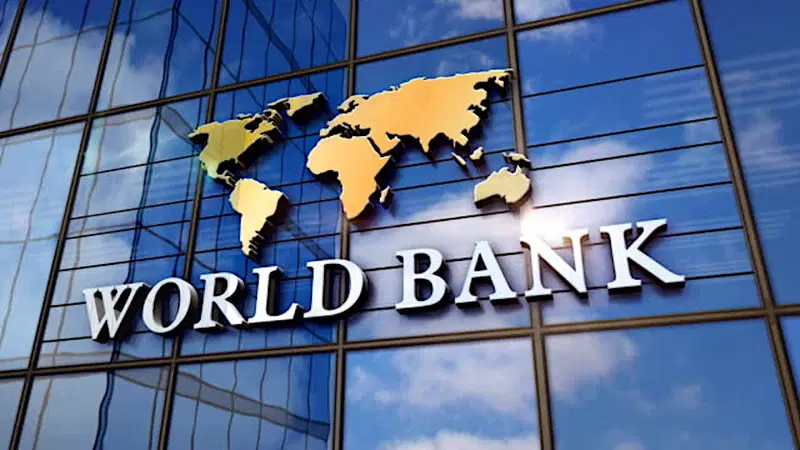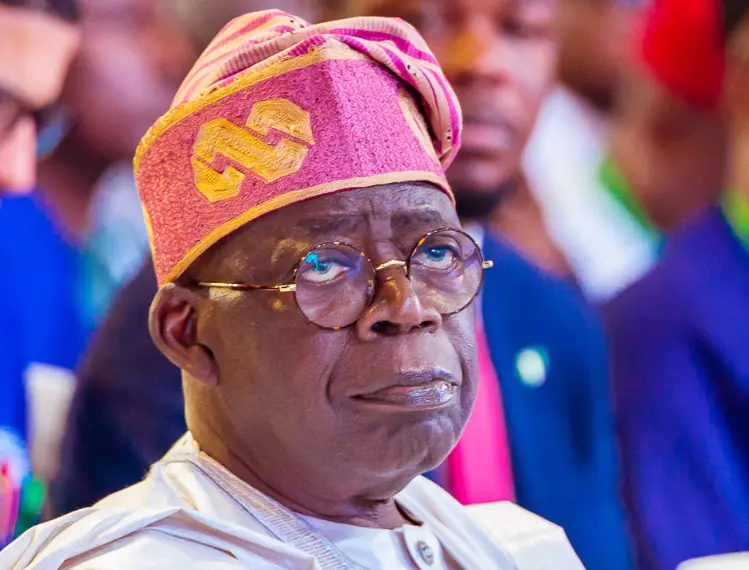
By Dele Sobowale
“We discouraged (the government) from borrowing and the Nigerian desk and the World Bank suffered the consequences.
“If you check, you would see that if the World Bank country director does not lend, it is either he is demoted or removed. But, it is our responsibility to make sure that the lending is useful to us.”
(Prof. Ode Ojowu, Weekend Trust, December 21, 22, 2024)
Professor Ojowu, former Chief Economic Adviser to President Obasanjo and member of Buhari’s Economic Advisory Council, has been around the corridors of power for a long time by virtue of being a very good economist and one of the few from the North for a long time. He was a member of the VISION 2010/20 group; served Abacha, Obasanjo and Buhari. Like any pair of economists, we have had reasons to disagree; because no economist in government can be totally professional. And, no economist, not in government, can fail to notice when our colleagues in power have joined the government in deviating from sound economic principles.
Two weekends ago, in a lengthy interview with the Weekend Trust, Prof was at his best in taking us through policies of various governments and how we landed in our current mess. However, before going into the substance of this article, there is another point of disagreement with Prof.
No to VAT reduction
“Tinubu should reduce VAT to 5%.” – Prof. Ojowu
At least three things should not be subject to popular opinion – court judgments, election results and the advice given by professionals to governments on national affairs – especially, economic advice. On at least two occasions in the past, Prof and I had disagreed on important matters. He was one of the apostles of VISION 2020 – those who told Fellow Nigerians that their country would be among the top 20 economies by 2020. I was the only economist to disagree. In 2020, Nigeria was ranked 31; and the country is on track to dive below 40 in 2025.
Tinubu has proposed 10 per cent from 2025; Prof is not content to leave it at 7.5%; he wants VAT slashed to 5% while ignoring the economic consequences. That can’t be right. The truth is VAT rate reduction will reduce revenue-generation and induce more borrowing. There must be a limit to borrowing and mortgaging the future of our children and grandchildren.
Addiction makes you blind to your reality”. Brittany Burgunder
“Debt is the opium of the governing classes.” Dele Sobowale, 2004.
That said; I want to return to my main reason for this article – Nigeria’s debt addiction. Every addiction creates its own optical and mental illusion; the feeling in the victim that a little more of the stuff will solve the problems. The demand for more creates the suppliers – those who feed on the sickness. Nigeria’s debt-addiction is mirrored everyday by my neighbours in Lagos Island. I decided years ago to borrow an example from US President Clinton; who opened his office in Harlem, New York – a mostly black ghetto. It is impossible to write or talk about poverty or the problems of the poor unless you live with the poor daily. Drug addiction – peddling and consuming – is also most openly on display here. The addicts want more; and the peddlers want more money. The latter encourage the former to take a little more; build more debt to be discharged and more crimes to commit to redeem the loans. Few of those who were known to be addicts have kicked the habit; most died with their addiction undiminished.
Nigeria’s governing classes, since 1999 has proved me right concerning an observation made at a lecture in 2004 – shortly after Dr Okonjo-Iweala, as Obasanjo’s Finance Minister, got Nigeria out of the choking debt-trap created by Obasanjo-Shagari-Buhari-Babangida-Abacha-Abubakar-Obasanjo again.
I was asked during the lecture titled: Way Forward after Debt Forgiveness, what Nigeria should do. My answer was: “avoid going into debt again; especially debt owed to the World Bank.” But, I quickly added, that “Debt is the opium of the governing classes. Before long Nigeria will again be in another debt-trap; and the World Bank would have laid the trap.” Today, just 20 years after we exited one trap, we are in a bigger trap. Here is why.
Whereas an investment bank would scrutinise your loan application to make sure that the project is viable; and even offer support to manage it successfully, the World Bank offers loans to governments with the same reckless abandon as the drug dealers in my neighbourhood. They recklessly offer loans to governments whose budgets and proposed deficit are spurious; and whose records on corruption guarantee that a substantial percentage of the loan will be embezzled. After creating the conditions that ensure that nothing succeeds, others in the same bank would later write beautiful stories about the failures.
It has been baffling to me for a long time how each government since 2005 had fallen into the quick sand so easily. Prof. Ojowu’s interview has enlightened me regarding the nature of our debt problem and the World Bank connection.
“In a sick country, every step to health is an insult to those who live on its sickness.” Bernard Malamud, 1914-1986, in THE FIXER.
It is remarkably similar to drug addiction. Taking the easy way out of problems by our leaders has landed Nigeria in the willing arms of those benefiting from our economic sickness; which is perpetual borrowing and spending revenue we have not earned and which we might never earn. Like the operators of those deadly outfits, it is never their intention for us to kick the habit – which is stronger than reason. It is also not in our own interest to be perpetually hooked. Prof. Ojowu has revealed to us that a World Bank Country Manager is not an economist offering disinterested advice to the nation and who collates data without bias. Instead, he/she is actually an Economic Salesman with a loan target to achieve. As any Marketing/Sales Manager, with a career to protect, would tell you, strict adherence to truth is not a top priority if it would impede sales.
Consequently, the World Bank has not always been honest with us. Certainly, none of their reports predicted that there would be a drastic negative variance in actual revenue by the Federal Government in 2024; or that exchange rates would rise to N1600/US$; or that inflation would gallop to 34.8% before the end of last year or that cash scarcity would bedevil the Nigeria economy.
The truth is; the World Bank’s Nigerian office missed all the variables which have made the loans being offered for 2025 inevitable. With such “friends”, who needs enemies? Ojowu has told us the truth. World Bank loans are not granted primarily to help us; but to feed our addiction for loans – irrespective of benefit to the people of Nigeria. The only beneficiary is the World Bank.
Vanguard




